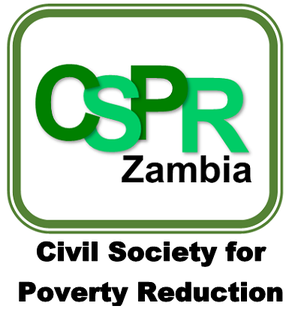Civil Society for Poverty Reduction (CSPR) says debt sustainability is key to increasing gross international reserves, controlling Kwacha depreciation, and halting the rise in inflation.
Organization Executive Director Dr Stellah Mugailla told Money FM News that the increased debt service allocation from 31.2 percent in 2020 to 48.3 percent in 2021 national budget is a clear indication that the current debt stock is unsustainable.
Dr. Mugailla noted that government has continued to borrow excessively within the domestic financial market as the stock of government securities increased from K80.2 billion as at end of December 2019 to K114.3 billion at the end of August this year, while credit to government increased by 46.9 percent from 2019 to 2020.
She observed that government has not updated the nation on the current stock of domestic arrears and has allocated only K2.8 billion towards dismantling arrears, a situation she says has potential to hamper local business growth.
Dr. Mugailla stressed the need to address the current liquidity constraints through reducing domestic borrowing and dismantling domestic arrears in order for the country to stimulate private sector-led growth.
“In 2021, government seeks to achieve a real GDP growth rate of at least 1.8 percent, reduce inflation towards the 6 to 8 percent medium-term target, increase gross international reserves to at least 2.5 months of import cover, reduce the fiscal deficit to 9.3 percent of GDP and Achieve domestic resource mobilization of not less than 18 percent of GDP. The increased debt service allocation from 31.2 percent (K44.1 billion) in 2020 to 48.3 percent (K57.8 billion) in 2021 national budget, is a clear indication that the current debt stock is unsustainable.”
“To stimulate private sector-led growth, there is a need to address the current liquidity constraints through reducing domestic borrowing and dismantling domestic arrears. CSPR notes that the government continues to borrow excessively within the domestic financial market. The stock of government securities increased from K80.2 billion as at end of December 2019 to K114.3 billion as at the end of August 2020 and credit to government increased by 46.9 percent from 2019 to 2020,” Dr. Mugailla stated.
Meanwhile, Dr. Mugailla stated that the increased budgetary allocations towards Social Cash Transfer and Food Security Pack Programmes have the potential to reduce poverty and vulnerability in the country if the allocations are translated into actual disbursements and expenditures.
She further applauded government’s plan to increase the number of beneficiary households under the traditional Social Cash Transfer Programme from 700,000 to 994,000 as well as the increase in the amount per household from K90 to K110.
Dr. Mugailla also said the organization is in support of government’s intentions to increase the number of beneficiaries under the Food Security Pack (FSP) from 80,000 to 288,492 in 2021 stating that the policy changes have also been supported by increased allocations.
“The Social Cash Transfer allocation has been increased from K1.0 billion in the 2020 budget to K2.3 billion and the Food Security Pack allocation has been increased from K122 million in the 2020 budget to K1.1 billion. Government should, however, take steps to improve its disbursement, expenditure, and management of such programs to realize the benefits of these increased allocations. Additionally, steps should also be taken to safeguard the funds from misallocation or misapplication,” she urged.
She however said the organization is dismayed to note that government has allocated inadequate resources to the Health sector and has reduced the allocation towards Housing and Community Amenities while combating the COVID-19 pandemic.
Finance Minister Dr. Bwalya Ng’andu has proposed to allocate K2.3 billion for the social cash transfer which is more than the K1.0 billion allocated in the 2020 Budget.
CSPR calls for debt sustainability







